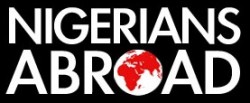Bloomberg - Nigeria’s government plans to end fuel subsidies, weaken the naira and raise spending by 7 percent in its budget next year as oil prices ease.
Scrapping the fuel allowance, which is planned over the next three years, will save the government 1.2 trillion ($7.5 billion) in 2012, according to a three-year plan sent to parliament by the Budget Office.
Africa’s top oil producer is facing declining revenue as the price of oil, the source of more than 95 percent of export income and 80 percent of government earnings, fell 28 percent in the past six months. The naira slumped to a record low of 160.65 against the dollar today, while foreign currency reserves, used to fund the central bank’s twice-weekly auctions to stabilize the naira, have fallen 9 percent in the year through Sept. 30.
The proposal to remove the fuel subsidy is “positive,” Razia Khan, head of Africa economic research at Standard Chartered Plc in London, said in an e-mail today. “The subsidy was expensive, responsible for significant distortions and rent- seeking opportunities in the Nigerian economy, with little overall benefit.”
The government plans to increase spending to 4.8 trillion naira next year and will estimate its revenue using a crude oil price of $75 a barrel and output of 2.48 million barrels a day, the Budget Office said.
While aggregate spending will rise to 5.18 trillion naira in 2015, the government is proposing imposing a ceiling on recurrent expenditure, such as wages, by that time in favor of capital investments, it said.
The budget is forecast on an exchange rate of 153 naira per dollar, compared with 150 currently. The budget deficit is expected to narrow to 2.69 percent of the gross domestic product, from the current 3.62 percent.












